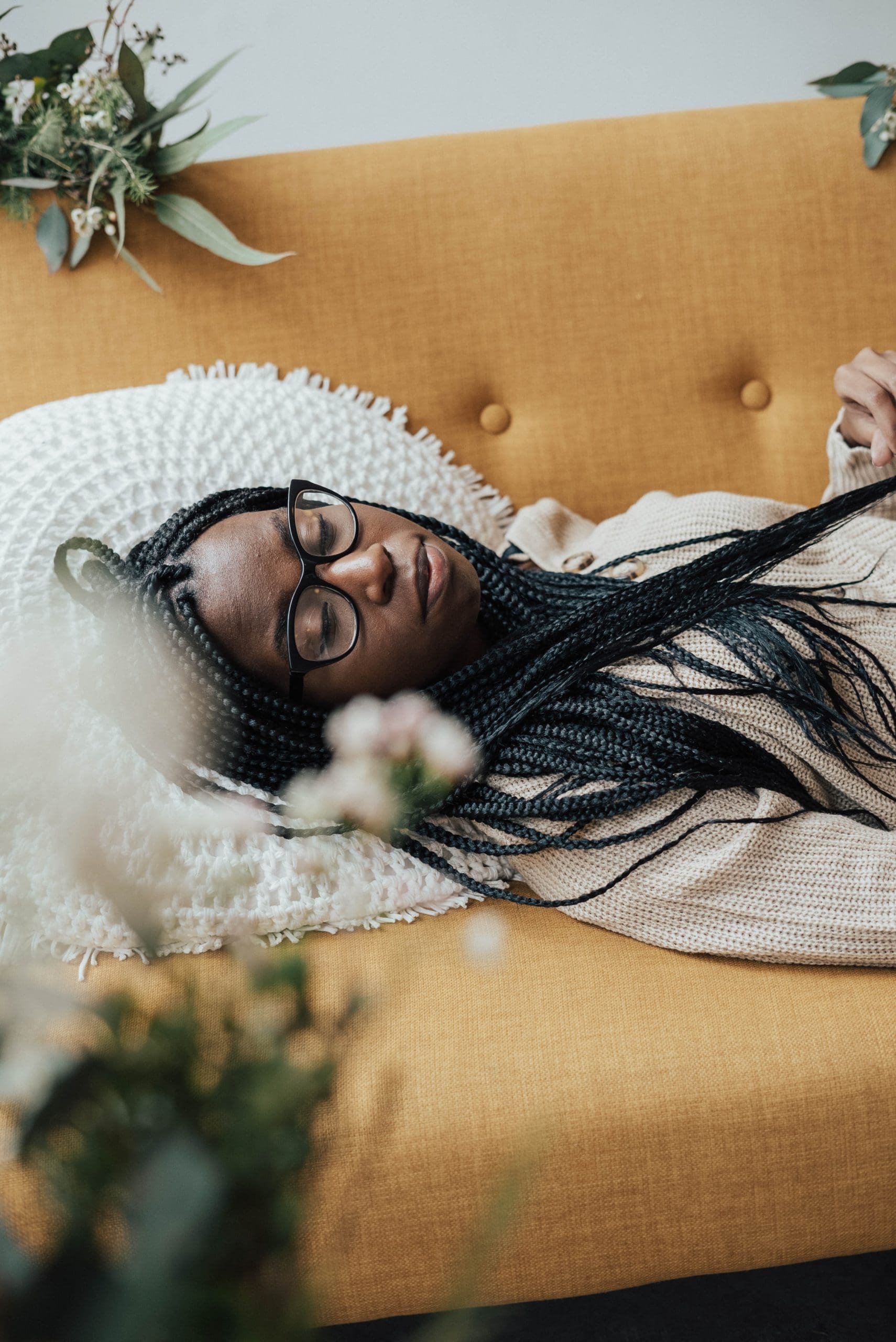Getting that all-important “beauty sleep” can sometimes be elusive. But it can also be as easy as having a fragrant plant on your nightstand. A good night’s sleep promotes heart health, improves memory and the ability to handle stress. During sleep the pituitary gland releases human growth hormone and repairs the damage caused to skin during the day. This facilitates a more glowing complexion in the morning. Sleep redistributes the skin’s water content to create hydration. The production of collagen is promoted by sleep helping to reduce the look of fine lines and wrinkles.
The secret is knowing what plants release the right aromas to help create that all important good night’s rest, calm anxiety, and restlessness. Cells in the nose (olfactory neurons) are connected to the brain. Once a scent is identified the brain produces a psychological and physiological response. Pleasant scents create a feeling of relaxation, while unpleasant smells can cause nausea. The gentle scents released by these six plants, and their contribution to sleep will help facilitate a host of sweet dreams. —Jennifer Cole
gardenia. Scientists at Wheeling University found that the spicy sweet aroma of a gardenia plant enhanced the effects of gamma-aminobutyric acid (GABA). The natural chemical in the brain responsible for promoting calm and relaxation. When the smell of a gardenia plant was present throughout a room a better sleep with less tossing and turning resulted.
jasmine. Aromatherapists have always known this plant’s sweet light fragrance is a powerful relaxant. Sleeping in a room with a jasmine infused aroma has been attributed to a more refreshed and alert feeling during the day as compared to other sleep aids or scents.
lavender. The scent of lavender is an anxiolytic (anxiety reliever) and relaxant. The smell of lavender quiets the nervous system by reducing agitation and anxiety. A small lavender plant by your bedside and you will sleep like a baby.
eucalyptus. The minty sharp scent of eucalyptus is great for opening nasal passages and especially helpful for those who suffer from mild sleep apnoea. It eases breathing and helps facilitate an uninterrupted rest. The scent has also been found to reduce anxiety and lower blood pressure further increasing the calming effect needed to fall asleep and stay asleep.
geranium. Typically considered an outdoor plant, geraniums are also easy to grow indoors. Their leaves have a peppery, sweetly floral, and earthy scent. The calming affect of the aroma is intoxicating. Having a geranium or two in your bedroom or using a bit of geranium oil in a diffuser will enhance feelings of positivity. Often considered a natural anti-depressant you will fall asleep contented.
sweet marjoram. This herb’s sweet herbaceous scent aids in decreasing anxiety which can cause insomnia. Often a last resort for those who have tried relaxing music, over the counter sleep aids, or herbal teas to fall asleep, sweet marjoram on a nightstand or used as an essential oil will almost certainly cause drowsiness and result in sweet dreams.

Be the first to comment